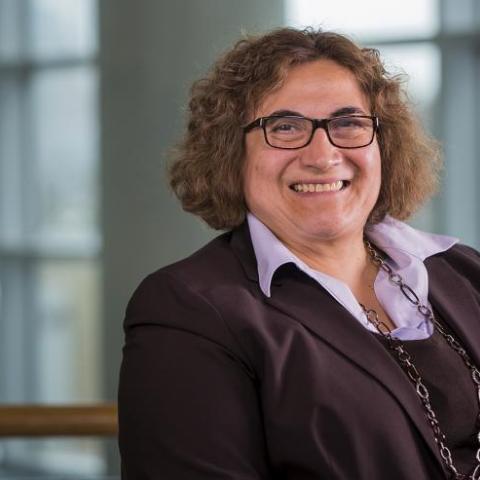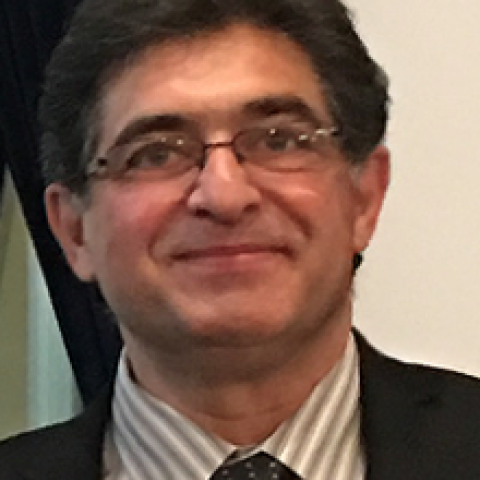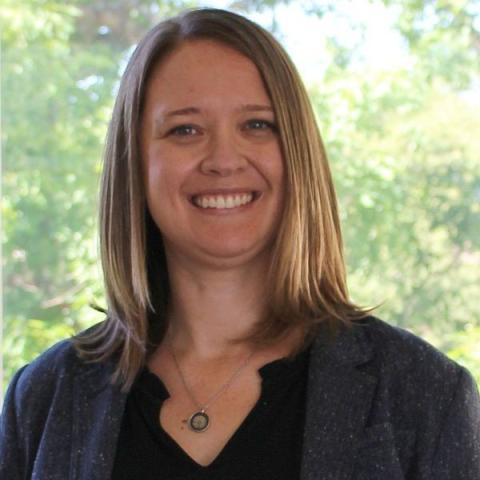Rosario Gerhardt

Rosario A. Gerhardt joined the faculty of Georgia Tech as associate professor in January 1991. She was promoted to full professor in 2001. Prior to coming to Georgia Tech she worked as an assistant research professor at the Center for Ceramics Research at Rutgers University from 1986-1990 and as a post-doctoral research associate at Rutgers for two years and at Columbia University in New York City for one year. She also worked as an ASEE/NASA Faculty Fellow at the NASA Marshall Space Flight Center in Huntsville, AL during summer 1995 and as a visiting professor at the Center for Nanomaterials Science (CNMS) at Oak Ridge National Laboratory in Oak Ridge, TN during the 2007-2008 academic year. She regularly interacts with researchers at various industrial companies and national laboratories. Her research work has been funded by the National Science Foundation, the U.S. Department of Energy, NASA and various industrial companies.
Gerhardt's research focuses on determining structure-property-processing relationships in a wide range of materials. Most recently, her research group has focused on making and characterizing polymer and ceramic composites containing conducting and semiconducting nanofillers and on the synthesis and assembly of nanoparticles into thin films useful for use as transparent electrodes, solar cell components, microwave heatable inserts, conductive paper, etc. Over the years, she has worked with a variety of ceramic materials such as dielectric insulators, ionic conductors and ceramic superconductors in bulk and thin film form, as well as with intrinsic conducting polymers. Her work also extends onto non-electronics related materials such as fiber and particulate reinforced composites and metallic alloys that are used for wear applications and as components in the hot-sections of gas turbine engines. Most of her work has dealt with the electrical and microstructural characterization of materials using impedance and dielectric spectroscopy, resistivity measurements, and structural characterization via microscopic techniques such as optical, SEM, TEM and AFM, and x-ray and neutron scattering methods. More recently, her group has also added various optical spectroscopy techniques to their repertoire of characterization methods (FTIR, UV-Vis and Raman).
Gerhardt is a fellow of the American Ceramic Society (ACeRS) and a member of the Materials Research Society(MRS), the IEEE/Dielectrics Division and Instrument and Measurement Division, the Metallurgical Society(TMS), the American Association for the Advancement of Science (AAAS), the American Society for Non-Destructive Testing (ASNT), the International Microelectronics and Packaging Society(IMAPS) and the Microscopy Society of America(MSA). She is also a member of Sigma Xi, Keramos and Tau Beta Pi. She has been active as an executive officer of the Electronics Division of the American Ceramic Society, having served as Chair of that division during the 2000-2001 year and on other capacities since then. She also serves as the faculty advisor for the Student Chapter of ACeRS and MRS at Georgia Tech and has been co-organizer of numerous symposia both at ACerS, MRS and other societies. She is a member of the National Research Council Associateship Panel Review Program. She is the author or co-author of over 200 refereed publications and has served as research advisor to more than 40 graduate students. Gerhardt and one of her students recently received one of the 2011 ASNT fellowship awards.
One of Gerhardt’s long term research goals is to establish that electrical measurements can be used as a non-destructive method for microstructural characterization at all length scales. She was the leading organizer of a symposium series on the same subject at the Materials Research Society Meetings during the 1995, 1997 and 2001 Fall Meetings from which three proceedings books were published (MRS Proc. Vols. 411, 500 and 699). In addition, she teaches a graduate course at Georgia Tech (MSE7140) where she covers the theory and applications of impedance spectroscopy from the microstructural point of view. She is currently writing a textbook on this subject, which is due to be published in 2013. She is also the editor of a recent book entitled “Properties and Applications of Silicon Carbide” that was published by In-Tech publications in 2011
Advanced Characterization; Ceramics; Conducting Polymers; Plasmonics; Nanostructured Materials; Printing Technology; Nanocellulose Applications; Films & Coatings; Biomaterials
- Advanced Manufacturing for Energy




